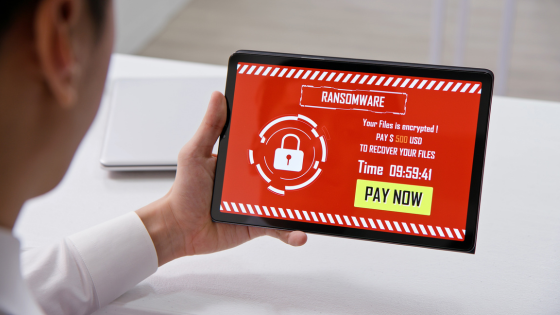Ransomware and Malvertising Prevention
In today’s digital landscape, cybercriminals are raking in millions of dollars through ransomware and malvertising schemes, leaving authorities perplexed on how to tackle this escalating threat. In this article we will explain more about malvertising schemes Malvertising Prevention.
The FBI recently reported that cybercriminals are netting an estimated $325 to $500 million every year using ransomware and malvertising schemes. Because of the increasing prevalence and sophistication of these scams, authorities are completely baffled about how to handle this rising threat that often causes business owners and computer users to just “pay the ransom” in order to continue their business operations.
Ransomware is a malicious computer software designed to do nothing more than block access to computer systems until a sum of money is paid, thus “Ransomware.” “Malvertising” is a combination of the words “malicious” and “advertising” and involves the use of internet advertising to spread malware by injecting malicious ads (or malware-laden ads) into an otherwise legitimate online network of web pages and the advertising featured on those pages.
You’ll know if your computer has been infected by blatant signs of infection that include sluggish internet connections, programs that take too long to load or your cursor being 20 seconds behind your mouse. Other times it’s a silent destructive force and you need to know the signs of infection.
The most obvious is getting a “pop-up” that indicates your files have been encrypted and there’s a deadline to pay a certain amount of money (ransom) in order to retrieve them. Creators of ransomware want you to immediately know that your computer is infected because that’s how they make their loot … and the sooner the better!
Browser redirects are also typical problems with infected computers which means that you are constantly redirected to a different page than the one you’re trying to access and repeated attempts result in the same redirection.
You may also notice that your home page has changed or the presence of new toolbars that you can’t remove or bombardment with pop-ups. Close one and another one pops up and there’s no escaping the vicious circle. Sometimes a particular website will have awful ads that make you feel like something wicked is happening but, most of the time, if your monitor screen is full of pop-ups, you have an adware infection.
Other not so obvious signs of infection include a slow running computer, constant crashing, unresponsive web browser, freezing of browser or unfamiliar icons on your desktop. It’s also possible that you downloaded legitimate software that contained one or more Potentially Unwanted Programs (“PUP”), which weigh down the operation of your computer.
Another problem typical of infected computers is “bounced” emails, or those that return to your inbox as “undelivered.” An infected computer will attempt to send out emails to the addresses in your contacts list and, if the “to” address doesn’t work, the email bounces back to the “from” address, which is your email address. So if you’re receiving a lot of bounced-back emails you probably have a malware infection.
There are also stealth infections, such as “botnets” and others that are designed to use your computer as part of an infected network of computers, used for attacking other networks/systems, which you will not discover unless you regularly scan your computer with a security program that detects potential problems.
Your computer is not the only electronic device you need to worry about because your cell phone is not immune to malware infections. If your phone battery drains quickly, it could be all those games you play or the music and videos you stream OR it could be infected with mobile malware. You should pay close attention to your cell phone bill to be sure you aren’t being charged for messages you didn’t send or for things you didn’t purchase.
Ransomware and malvertising are interrupting internet business daily and you need take measures to ensure that you protect your systems to keep your business operational and free of these nefarious infections.
Protect your business from cybercriminals with IT security measures. EyesEverywhere IT Consulting to stay one step ahead of these malicious infections, ensuring the uninterrupted operation and security of your data and business.
Contact the professionals at EyesEverywhere IT Consulting today for a better understanding of the tactics used by cybercriminals to infect your electronic devices and for tools and solutions designed to detect and eliminate ransomware and malvertising and thereby protect your data and business from cybercriminals.


Recent Comments